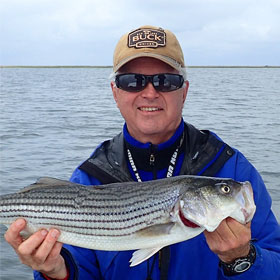What Do You Learn From Taking a Boat Safety Course?
By Ken Schultz
May 23, 2023
Required by most states to operate and register a boat, a boat safety course is important for learning how to be a safe, lawful, and responsible boater
There’s a lot of freedom associated with boating and being on the open water. But there’s also responsibility, too. It may be easier to go this way or that way in a boat compared to piloting a standard automobile, but there are still dangers and safety issues to be aware of, and rules to be followed.
That’s why a boating safety course, aka boat safety course or boater safety course, is required to operate a boat in most states. That applies not only to you as the boat owner, but also to anyone aboard who operates your boat. Check with your state to find out what it requires with respect to boats and personal watercraft (PWC) operation. It may be mandatory in your state to complete such a course before registering and operating your boat or PWC. Even is it is not required in your state, it’s still a good idea to take such a course as a practical education matter. Furthermore, completion may make you eligible for a boat-insurance discount.
Who administers the boating safety course?
There are many places, both in person and online, where you can take a boat safety course. The U. S. Coast Guard Auxiliary, U.S. Power Squadron, and other volunteer groups regularly provide classes, as do some state boating agencies through approved partner organizations. When looking up the requirements in your state, see where they direct you to get certified. You may use their recommendation, or go elsewhere as long as the course is approved.
It’s worth noting that by taking an in-person locally administered course, you’ll benefit from learning about matters and conditions that are specific to your immediate area. The combined input from local instructors and other boaters will help you become aware of things you won’t learn from an online course.
What’s covered in a boating safety course?
Here’s a summary of the key topics:
• Safe boat operation on navigable and non-navigable waterways
• Mandatory boat safety equipment, (required by states and/or the U.S. Coast Guard)
• Basic information about boats, engines, float plans, reading charts, fuel, trailering, knots, and maintenance
• Casting off, docking, anchoring, and maneuvering practices and procedures
• Navigation rules, lights, signals, and sounds
• Understanding aids to navigation
• Understanding weather conditions and affects on boating
• Your state’s laws governing boat ownership and operation
• Dealing with accidents and boating emergencies
• Protecting the environment and wildlife
• Boating etiquette
• Safe operation while enjoying all types of water sports (fishing, hunting, skiing, tubing, diving, etc.)
What do I get upon completion?
A certificate (also called a boater education card or “boating license”) of having completed a valid boating safety course. As of the time of this writing, such a certificate is permanently valid, and it is recognized in other states (like an automobile driver’s license). It will allow you to register and operate a boat in another state, in the event that you move.









